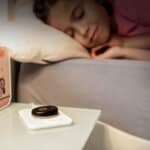Tips for After-School Activities: Your Child With A Hearing Implant

Once your child with a hearing implant has finished school for the day, there will be a range of after-school activities that he or she can do. Playing sports, going out with friends, doing homework, reading—there are so many great options! Regardless of the activity, it can be helpful to know how to look after your child’s audio processor and keep it safe. So, here are some tips that you can use to keep your child hearing and enjoying their time after school.
Sports and Extracurricular Activities
Taking up extracurricular activities like sport is a great idea for a child with a hearing implant. It offers them an opportunity to make friends, expands their interests, and helps them become a part of the local community.
For a child with a hearing implant playing sport, it is important to protect their audio processor and their implant. If your child plays a contact sport, make sure that they wear a helmet that allows them to still wear their audio processor, but protects the implant inside their head. We don’t recommend modifying a helmet yourself as it can make it unsafe.
For other sports that don’t require a helmet, like dancing or soccer, be sure to secure the processor in another way to keep it from falling off with movement or sweat. Try out using hair or attachment clips, different wearing options, or the MED-EL Sports Headband.
When swimming or doing other activities around water, take care and make sure to use WaterWear for SONNET, OPUS 2 or RONDO. Other processors should be removed before partaking in activities near water.
When Doing Homework
As with most children, an easy way to make sure that homework is completed is to have an after-school schedule. For hearing implant recipients, it is especially important to talk with your child’s teacher about how much time is reasonable to set aside each night.
Here are some additional tips for ensuring your child with a hearing implant is managing their homework:
- Stay aware of your child’s homework and habits.
- Keep up on how much help your child needs to complete his or her homework, how much time it takes, and how comfortable they feel.
- Show that you support your child and that they can always come to you with questions or when they need help.
- If you’re noticing that your child isn’t able to complete the amount of homework that they have, try talking to their teacher to find the best solution together.
- Most children with a hearing implant will benefit from being taught concepts and language before they are introduced in the class. Talk with your child’s teacher to see if you can bring home information about classroom lessons ahead of time so that you can briefly introduce these to your child.
Family Meals
School may be where your child with a hearing implant practices his or her listening and communication skills, but home is where these skills are developed. Family mealtime is a great opportunity to develop these skills because the whole family can talk, listen, and be involved.
To get the most out of this time, keep background noise to a minimum. This way it can be easier for your child to hear each person’s voice. Encourage each family member to talk about their day and ask questions about each other’s day.
Bath Time
Always make sure to keep your child’s audio processor in a safe place. If you aren’t using WaterWear, you should remove any MED-EL audio processor before bath time to keep it dry. Set the processor somewhere visible so that your child knows his or her audio processor isn’t gone forever.
Bedtime
As with all children, the time just before bedtime is a great opportunity to read aloud to your child with a hearing implant. While your child is still wearing their audio processor, let them lie in bed or curl up next to you as you read aloud or show them a picture book. Or, just talk about your day on a one-on-one level. Ask your child if they have any questions about their day, or ask them questions about what their favorite parts of the day were.
When it comes to bedtime and removing the audio processor, always tell your child that you are going to remove it before doing so. Then, take it off and place it in the same spot where it always goes. This way they will not be surprised when the processor comes off and sound stops, and they will always know where it is in the morning.
Here are some ways to care for the processor just before putting it away at night:
- Wipe it down with a clean and dry cloth to remove any dust or moisture.
- We recommend using an electrical or UV Drying Kit overnight. Remove the battery pack cover before putting it into the drying kit with your audio processor. Do not put any batteries into the drying kit, including disposable or rechargeable batteries.
Liked this post on how to support your child with a hearing implant? Subscribe to the MED-EL Blog by entering your email below to receive all the tips and tricks straight to your inbox!
Thanks for your message. We will reply as soon as possible.
Send us a message
Field is required
John Doe
Field is required
name@mail.com
Field is required
What do you think?


